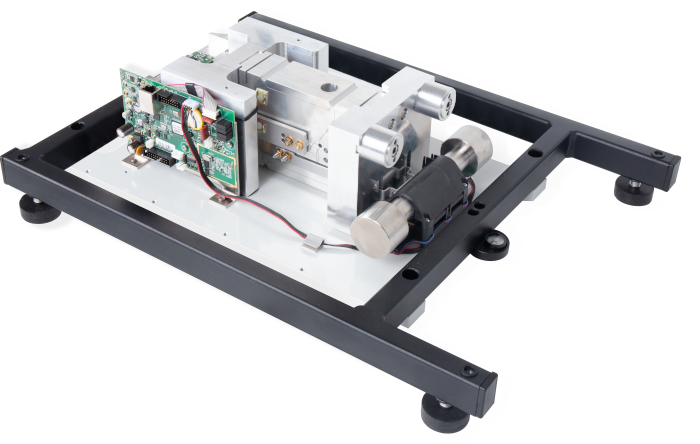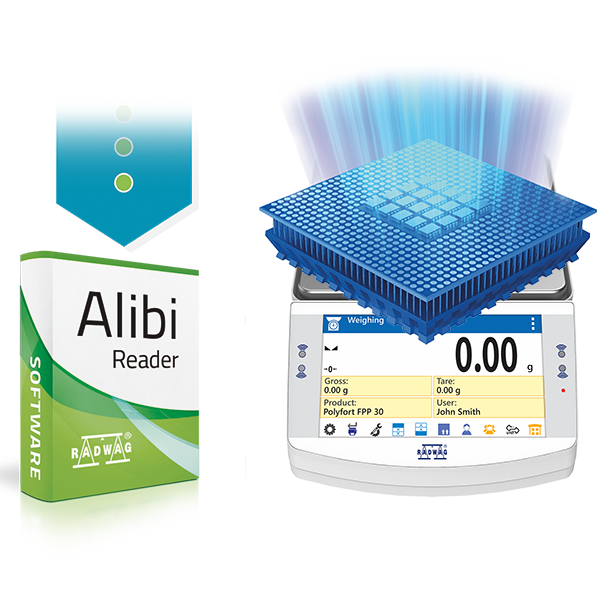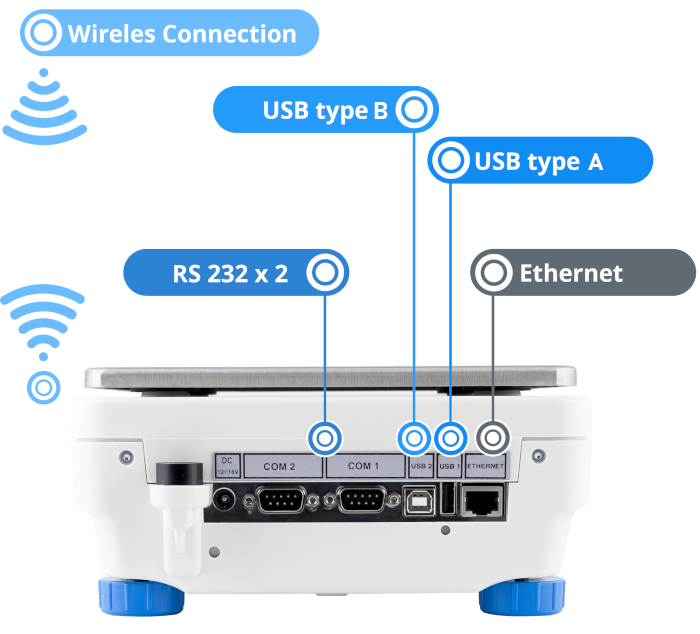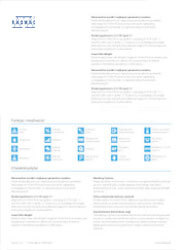PS 8100.X7.M Precision Balance

MONO
BLOCK technology. The innovative construction of PS X7.M balance features a new single-point weighing pan fastening, which ensures its excellent geometry and minimizes eccentricity error. The labyrinth-shape fastening guarantees excellent resistance to contamination.
Weighing module

MONO
BLOCK technology enables weighing loads with the readability of d=0.01 g at the maximum capacity of 10 kg. Rigid base ensures stability of the weighing system and great resistance to shocks.Internal adjustment system means precision and high measurement repeatability. Leverage of internal weight mass enables adjustment within the whole measuring range.
Features:
- d=0.01 g readability at 10 kg max capacity
- great resistance to ambient conditions
- stability and repeatability over time
-
MONO
BLOCK technology - internal adjustment within the whole measuring range
- complex databases and ALIBI memory
- ergonomic 7” colour touchscreen
- touch-free operation

Databases
- Products (5 000 products)
- Users (100 users)
- Packaging (100 packaging types)
- Customers (1 000 customers)
- Formulations (100 formulations)
- Formulations reports (500 reports)
- Ambient Conditions (10 000 records)
- Weighings (50 000 records)
- ALIBI memory (512 000 records).

ALIBI memory

New Possibilities
USB allows for fast transfer and copying of work results (measurements, reports, databases) to a computer or other weighing device. The balance provides possibility of remote data management.














 Additional fee
Additional fee

 Albanian
Albanian Danish
Danish Nederlandse
Nederlandse Estonian
Estonian Finnish
Finnish Hungarian
Hungarian Icelandic
Icelandic Kazakh
Kazakh Latvian
Latvian Lithuanian
Lithuanian Macedonian
Macedonian Norwegian
Norwegian Portuguese
Portuguese Romanian
Romanian Russian
Russian Slovak
Slovak Slovenian
Slovenian Swedish
Swedish Ukrainian
Ukrainian Serbian
Serbian Montenegrin
Montenegrin Português (Brasil)
Português (Brasil) Deutsch
Deutsch Español
Español Français
Français Italiano
Italiano Japanese (日本語)
Japanese (日本語) Polski
Polski Türkiye
Türkiye Česky
Česky 中文
中文


















